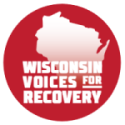Why Now?
Long-term recovery from addiction to alcohol and other drugs is a reality for over 23 million Americans, one of our nation’s best-kept secrets. Regardless of the paths people have chosen to achieve recovery, their lives and the lives of their families, friends, neighbors, co-workers and communities are vastly improved as a result. They are the living proof that there are real solutions to the devastation of addiction.
While recovery from addiction is a reality, more than 120 Americans die from overdoses on average each day – nearly 44,000 people each year – more than who die from either homicides or traffic crashes. Another 22 million Americans are still suffering from addiction to alcohol and other drugs.
Where is the national outrage about this needless loss of life, the costs to families and the economy, and more importantly, the demand for solutions? We know that addiction is preventable, treatable, and people can and do get well. Too many of those affected have been incarcerated, they and others are afraid to speak up about the failed policies and poor care due to long-standing stigma and discriminatory public policies. They are yet to be recognized as a political force because politicians assume they don’t vote and, indeed, many have had their voting rights revoked. And, for too long, a great majority of people connected to addiction have remained silent.
The time is now to break that silence.
Why 2015 and Why Washington, D.C.?
- A grassroots constituency that has developed over the last 15 years is organized and speaking out
- To build on greater acceptance of treating alcohol and other drug problems as health issues
- Across the political spectrum, understanding that current rates of incarceration, including for alcohol and other drug related offenses, can’t be sustained
- A growing recognition of the impact of discrimination towards people with substance use disorders and the importance of dismantling legal and societal manifestations of discrimination.
- A sense of urgency over the current opiate overdose crisis
- Recognition that although harm reduction strategies and services save lives and provide a bridge to treatment and recovery for many, most Americans do not have access to them.
- Recognition that despite the fact that recovery from a substance use disorder is possible through many means and includes many pathways, too many Americans lack access to the individualized treatment and other recovery support services they need to get their lives on track.
- Need for effective implementation and enforcement of the Mental Health Parity and Addiction Equity Act and Affordable Care Act to insure access to care for people seeking addiction prevention, treatment, and recovery support services
- A man in long-term recovery is the Director of the White House Office of National Drug Control Policy (ONDCP)
- Non Presidential election year
- The success of The Anonymous People film, fostering an expanding interest in advocacy
- Introduction of the bi-partisan Comprehensive Addiction and Recovery Act in Congress
- A new era and interest for collaboration at the local, state and national levelsUNITE to FACE ADDICTION is a grassroots advocacy effort and will partner with local, state and national participating organizations and many Federal and State Agencies. It is 100% privately funded from non-governmental sources. UNITE to FACE ADDICTION will not accept money from corporate interests with a real or perceived conflict of interest related to addiction solutions.
For more information, contact Michael King at mking@facingaddiction.org
www.facingaddiction.org

